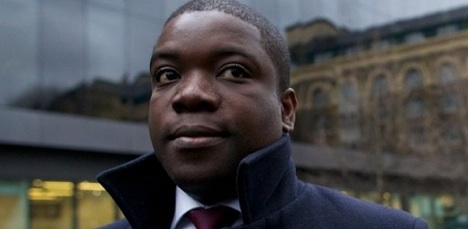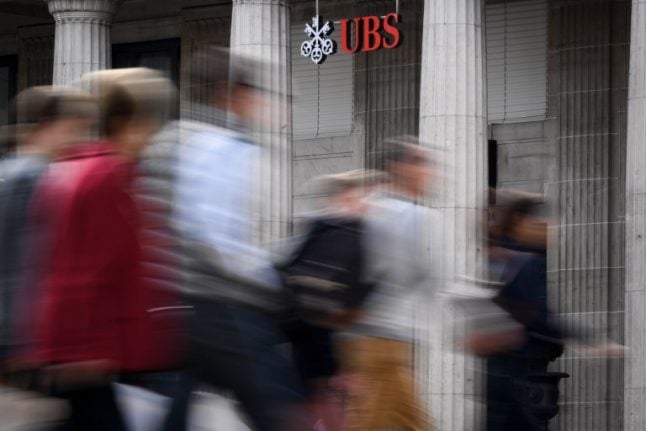In yet another black mark for Swiss banking, regulators in Britain and Switzerland moved fast to punish UBS for failing to stop rogue trader Kweku Adoboli, who was sentenced last week to seven years behind bars in Britain for gambling away $2.3 billion.
Britain's Financial Services Authority (FSA) watchdog said it had fined the Swiss bank £29.7 million ($47.6 million) for "systems and controls failings (which) revealed serious weaknesses in the firm's procedures, management systems and internal controls."
The Swiss Financial Market Supervisory Authority, or FINMA, meanwhile announced several sanctions against the bank, including stopping its investment banking arm from making any new acquisitions.
The Swiss regulator also ordered UBS to seek prior approval from FINMA for an new business initiatives in its investment bank, and placed gradually declining upper limits on the investment bank's risk-weighted assets.
Last Tuesday, a jury in London found the 32-year-old Ghanaian-born Adoboli guilty of two counts of fraud, though it cleared him of four charges of false accounting.
During the two-month trial, Adoboli admitted losing the enormous sums but denied any wrongdoing. He claimed that senior UBS managers were fully aware of his activities and encouraged him to take risks and raise profits.
However, prosecutors said that in a bid to boost his bonuses and chances of promotion, Adoboli exceeded his trading limits, failed to hedge trades and faked records to cover his tracks between 2008 and 2011.
The tactics initially paid off — prosecutors said he earned $90 million for UBS and its clients by May 2011 and the bank rewarded him with huge bonus increases, rising from £15,000 in 2008 to £250,000 in 2010.
But as the financial crisis took hold, Adoboli's deals went bad.
UBS only became aware in September 2011 that unauthorised trades had taken place on its Exchange Traded Funds Desk in its Global Synthetic Equities (GSE) division in London — far too late according to FINMA and FSA, which together probed UBS's failings and found significant deficiencies in the bank's supervision of Adoboli's trades.
"UBS failed to question the increasing revenue of the desk and failed to ensure that there was a corresponding increase in the controls in place over the desk," Tracey McDermott, FSA's director of enforcement and financial crime, said in a statement.
"As a result Adoboli, a relatively junior trader, was allowed to take vast and risky market positions, and UBS failed to manage the risks around that properly," she said.
"We know from past experience that failures to manage risk properly can cause firms to fail and cause systemic harm."
FINMA, meanwhile, blasted UBS for failing "to properly investigate the many warnings triggered by transactions from the ETF desk, (like) the unusually large profits generated" there starting in early 2011.
"Substantial" reconciliation errors, sometimes exceeding $1 billion, were also not seriously questioned, and Adoboli's managers accepted his "implausible" explanation that they were mere "booking errors," FINMA pointed out.
"The fraudulent transactions executed by the rogue trader would have been detected sooner if these deficiencies had not existed," it said.
UBS, which qualified for a 30-percent discount in the British fine after agreeing to settle early, said on Monday that it accepted the findings
of both the British and Swiss regulators and stressed it was "pleased that this chapter has been concluded."
Following Monday's announcements, UBS, Switzerland's biggest bank, saw its share price fall 0.95 percent in late morning trading on a Swiss market down 0.47 percent.
Helvea analyst Tim Dawson told AFP the regulators' "vote of no confidence" for the UBS management in place during the fraud was not surprising.
"It means that the company has no choice but to strengthen internal controls," he said.
He noted though that the sanctions would "not have any material impact on the investment bank, as the company wants to reduce these activities anyway."
Late last month, UBS announced 10,000 job-cuts as part of a massive restructuring of its ailing investment bank, which also burdened it with catastrophic losses during the 2008 "subprime" crisis.



 Please whitelist us to continue reading.
Please whitelist us to continue reading.
Member comments